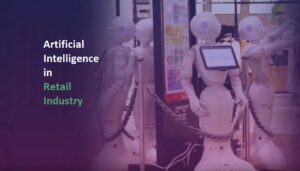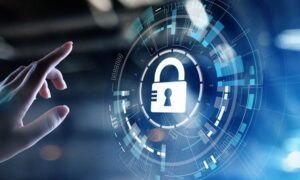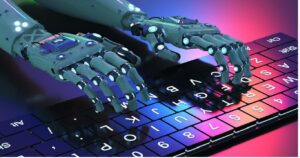Schools around the nation are leveraging the latest innovations in education technology to further the goals of their districts. For example, take-home laptops are now staples in virtual classrooms. Without technology, it would’ve been nearly impossible for students to continue learning during the COVID-19 pandemic.
One prominent technology becoming increasingly popular in the education sector is artificial intelligence (AI). AI has applications in nearly every industry, but it could be especially useful for your school when it must conduct an internal audit.
Learn more about the purpose of conducting internal audits in the education sector and how it could benefit your school.
The Importance of Internal Auditing in Schools
“A comprehensive internal audit will unveil detailed assessments of these processes and show your administrators where there’s room for improvement.”
Internal audits are commonplace in the business world. Companies of all types and sizes conduct them to identify their shortcomings and find ways to improve.
In addition to public and private companies, school districts, higher education institutions and other members of the educational community perform audits to determine the effectiveness of their programs, classes, curriculum and departments.
There are a few types of internal audits your school can perform. Audits typically assess various aspects of the institution or school district, including:
- Financial
- Operational
- Environmental
- IT
- Compliance
Suppose your school wants to track IT spending or observe everyday operational activities. A comprehensive internal audit will unveil detailed assessments of these processes and show your administrators where there’s room for improvement.
Internal audits can also help your school determine whether employees are performing well in their jobs. Teachers are the backbone of the education sector, but not all have the essential qualities students gel with. For example, strict educators are ideal for high-achieving students, while more laid-back teachers keep kids engaged during class.
How AI Relates to Internal Auditing
Internal audits can help your school identify inefficiencies, find underlying causes of teachers’ pain points and improve key performance indicators (KPIs). However, your school’s auditing process might not work for another institution.
One thing all audits have in common is the time-consuming nature of filling out heaping piles of documentation. Most internal audit tasks are inefficient, but only because it takes too much time to record notes manually.
Various auditing software platforms have emerged to streamline the process. Risk Cloud, AuditUtopia and AuditBoard are online platforms companies can leverage for auditing purposes. In addition to these solutions, your school might benefit from AI-based tools.
AI-Based Internal Audits Benefit the Education Sector
“Optimizing costs is essential for education these days, as public schools are often strapped for cash.”
Internal auditors always try to boost the value they bring to their clients. As AI has progressed, it’s clear that it could significantly impact the auditing sector, and audits in education are no different.
There are a handful of benefits of using AI for internal auditing. Here’s how they’re applicable in a school like yours.
Higher Efficiency and Cost Optimization
Speeding up the audit process is a no-brainer in today’s education system. Speed is the name of the game for many private businesses, but accomplishing more in less time is always a top priority for any organization.
Schools can hire an internal auditor using AI solutions to reduce the time spent doing their due diligence. Optimizing costs is essential for education, as public schools are often strapped for cash.
Increased Value of the Internal Audit
An auditor using AI throughout the auditing process will inevitably achieve better, high-quality results. AI accomplishes more of the same manual tasks employees are typically responsible for, so the final audit becomes that much more valuable.
Auditors willing to adopt new technologies would likely be able to complete more audits in the same amount of time spent manually. AI-based auditing tools are also highly accurate, enabling school administrators to trust the outcomes.
Better Utilization of Resources
Using resources appropriately is a challenge every school faces. Most public school officials would agree that annual budgets are often limited, meaning students suffer the consequences of poor educational infrastructure.
Investing in AI for auditing purposes is just one piece of the puzzle — your school needs to take advantage of quicker, more accurate processes if it wants to do right by your community.
How Audits Can Spark Change in Schools
“There’s no silver bullet to fix some of the poor practices, but an internal audit can show you which techniques are doing more harm than good.”
There are a few ways AI-powered internal audits can help create lasting change within your school district.
Integrating New Technologies
After an internal audit, an educational institution can learn which pain points need to be addressed in and out of the classroom. For example, the audit might reveal you need more technologies to remotely proctor language proficiency tests, which are cost-effective and easy for test-takers. These types of technologies have become indispensable in schools.
Offering Better Pay and Benefits
It’s no secret — educators deserve better pay. In the post-audit process, administrators can work with teachers’ unions or other representatives to negotiate higher salaries and more desirable benefits.
Promoting Sound Practices
An audit unveils some of the negative aspects of the educational system. There’s no silver bullet to fix some of the poor practices, but an internal audit can show you which techniques are doing more harm than good.
From there, you and your colleagues can make important decisions about the school’s mission and values. Schools must address any issues costing them money, resources, or general satisfaction.
Ensuring Compliance
K-12 and higher education must follow certain compliance requirements. Thankfully, an internal audit can check to see if schools are complying with state and federal requirements without extra workloads on administrators.
For example, here are some of the most well-known federal education laws schools must follow:
- Individuals With Disabilities Education Act
- Title IX
- No Child Left Behind Act
- Elementary and Secondary Education Act
Leaders can respond and rectify the issues if an audit shows your school is not complying with industry or state standards.
Using AI for Internal Audits
Artificial intelligence will transform the way we live and work. Schools and the general education sector will inevitably face the question of whether it will prove useful, particularly in terms of internal auditing. Internal audits with AI-based features can be quicker and more accurate, which is why more schools will adopt AI. Your school should consider working with an auditor using the latest solutions.









